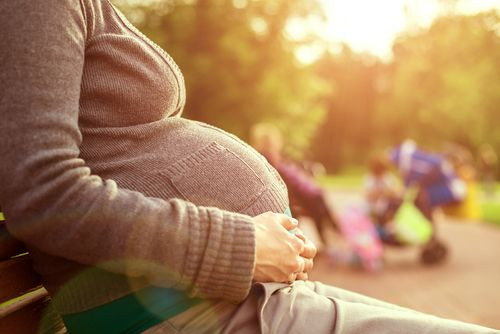New Chemotherapy Drug 'Goserelin' Helps Prevent Early Menopause, Reproductive Problems For Breast Cancer Survivors

The prostate drug goserelin has been shown effective in clinical trials for lowering the chances a young breast cancer survivor will experience early menopause and the end to her childbearing years — a common side effect of life-saving chemotherapy.
Women who took the drug also lost less estrogen and were more likely to get pregnant, with improved long-term survivability, too. "We found that, in addition to reducing the risk of early menopause, and all of the symptoms that go along with menopause, goserelin was very safe and may even improve survival," study leader Kathy Albain said in a press statement. "I think these findings are going to change our clinical practice."
In the study, the investigators randomly assigned 131 early-stage breast cancer patients to treatment of standard chemotherapy, with another 126 receiving a combination of chemotherapy and goserelin. After two years, women receiving the experimental drug were less than half as likely as others to have experienced early menopause or to have elevated levels of the hormone FSH, a key indicator of reproductive health problems. Compared to 45 percent of women receiving only chemotherapy, only 20 percent of those in the experimental group had experienced menopause or its hormonal precursors. Similarly, the pregnancy rate was nearly twice as high among those who took goserelin, at 21 percent compared to 11 percent.
But even more important, a significant advantage in survivability emerged four years after the trial began. Whereas only 82 percent of the women receiving only chemotherapy still lived, 92 percent of those receiving the treatment with goserelin had survived. "Premenopausal women beginning chemotherapy for early breast cancer should consider this new option to prevent premature ovarian failure," Albain said.
Twenty-five percent of breast cancer survivors are younger than 50, the approximate age for onset of menopause in the United States, according to the Centers for Disease Control and Prevention. Early menopause after chemotherapy may strike women in their younger maternal years, in the twenties and thirties, bringing such uncomfortable symptoms as vaginal dryness, hot flashes, night sweats, sleep problems, and mood problems.
"Early menopause in younger breast cancer patients can be very debilitating," Albain said.
The findings were presented Friday at the annual meeting of the American Society of Clinical Oncology.
Published by Medicaldaily.com



























